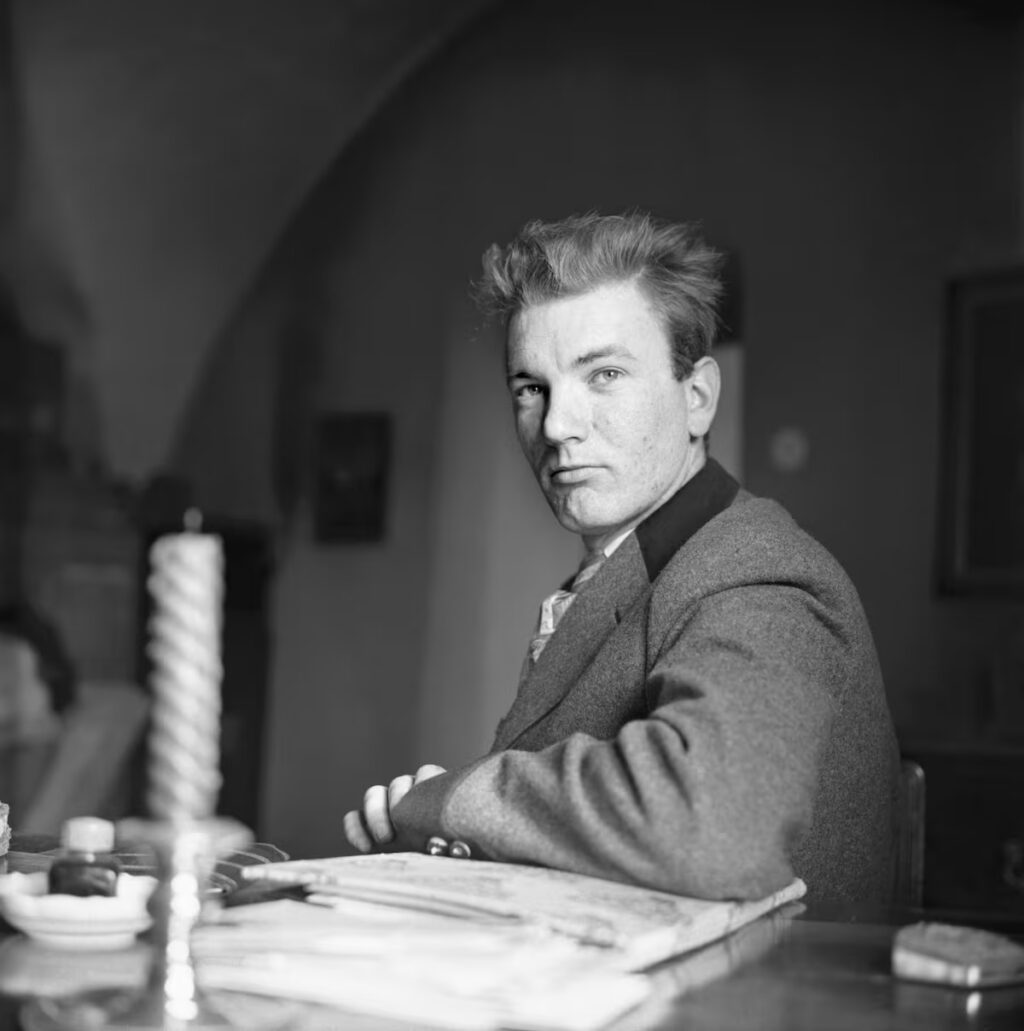
Old Masterswhich can be read as the literary testament of Thomas Bernhard (1931-1989), was originally published in 1985. It is a masterpiece. Forty years later, Javier Aparicio Maydeu published an edition in the collection Letras Universales, with the classic translation by Miguel Sáenz and guidelines that can help understand the novel. The plot is simple, as in other works by Bernhard. Atzbacher, who has been writing for many years a work that perhaps will never see the light of day, met Reger one Saturday morning in the Bordone room of the Kunsthistorisches Museum in Vienna, an eighty-year-old music critic who was recently widowed and who occasionally writes in The times and wants to make you a proposal. For decades Reger has been going to that room every day and sitting in front of the Portrait of a man with a white beard, by Tintoretto. He transformed the bench in front of the painting into a sort of portable office. Atzbacher arrives an hour early and observes Reger and Irrsigler, the museum guard. Atzbacher reports observations and stories that Reger told him on other occasions and later during the meeting.
The book is constructed as a succession of single-paragraph monologues in which the critic (and occasionally another character) repudiates the falsity, mediocrity and kitsch of art, society and his country, which Bernhard also attacked in culling AND The unfortunate. The torrent is suffocating and addictive, insightful and exhilarating. He reviews the philosophy of Heidegger – “that ridiculous National Socialist bourgeois in baggy trousers”, “a super-German ruminant philosopher, a philosophically pregnant cow” “who grazed German philosophy and for years dropped his coquettish dung on it in the Black Forest” –, Stifter, literary sentimentalism or Klimt. He rails against childhood, the State – “it annihilates beings” -, the petty-bourgeois mentality and the pettiness of housekeepers, the groups that visit museums, the smell of Viennese toilets and obviously his fellow countrymen: “The Austrian is frankly a born concealer of crimes”; “If Austria were at least a mental hospital, but it is a hospice”. It’s a Central European diatribe on the exhaustion of Western culture that often sounds more like Larry David than George Steiner. It is also a narrative lesson: in the superimposition of points of view and Chinese boxes, in the combination of notarial formulas and a foggy atmosphere, in the use of repetitions to comic and theatrical effect, with the strange sensation – which may have influenced one of his most brilliant admirers, Javier Marías – of enclosing and fabricating meaning at the same time.
Shows a musical idea of writing, with repetitions, fugues and motifs; it is a culturalist and punk art book, a reflection on old age and a meditation on the gaze: “Precisely everything we study ultimately disappoints us,” says Reger, who observes that every original is a fake. The characters speak in a similar way, with terse sentences. At the beginning they have no opposition, but the discussion progresses and there are more or less explicit nuances and contradictions. The man who dedicated himself to the study of art to the point of having accumulated “a monstrous spiritual heritage” finds no consolation or teachings in it (not even in Goya, his favorite painter) when faced with the loss of his wife: “We naturally get used to a human being for decades and we love him for decades and in the end we love him more than anyone else and we chain ourselves to him and, when we lose him, it is truly as if we had lost him. All”.
Old Masters It is a criticism of culture and at the same time what today we would call a book on loneliness and pain, moving precisely because it distances itself from sentimentalism and its impostures. The brutal debater who speaks in generalizations and absolutes seems to seek and desire some particular company: even going to the theater with something resembling a friend, knowing that the show, needless to say, will be terrible.

Old Masters. Comedy
Thomas Bernardo
Editing by Javier Aparicio Maydeu
Translation by Miguel Sáenz
Chair, 2025
240 pages, 23.50 euros





